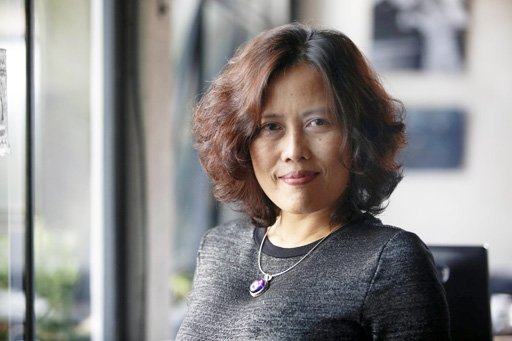
Playwright Faiza Mardzoeki is blunt when she talks about the stage.
“Generally, the world of theater in Indonesia is pathetic. Even in Jakarta, the largest city, with over 20 million residents, you can find only two or three established theater groups. This worries me a lot,” Faiza told The Jakarta Post in a recent interview.
“There is also a lack of regeneration. New theater groups often face great difficulties in terms of infrastructure and financing. The expense for training and renting space continues to soar. In addition, thorough research and papers on theater have become more and more rare,” she added.
Born in Purwokerto, Central Java, on Feb. 7, 1972, Faiza honed her literature and theatrical skills in 1992 with Wiji Thukul, the legendary poet and dramatist who penned critical poems about the Soeharto’s administration. He has been missing since 1998.
Faiza was also involved in numerous women’s empowerment and human rights’ movements and this influenced much of her early theatrical works when she started writing and producing her own plays in 2002.
Much of Faiza’s previous works talked about feminism, such as Perempuan Di Titik Nol (2002), adapted from Egyptian author Nawal El Saadawi’s novel Women at Point Zero; Panggil Saya Kartini Saja (Just Call Me Kartini) in 2010; and Rumah Boneka (The Doll’s House), adapted from Norwegian dramatist Henrik Ibsen’s work.
“Lately, I have broadened my interests,” Faiza, who has been commuting between Indonesia and Australia since 2003, said.
Faiza’s latest work, Subversif! (Subversive!), adapts Ibsen’s classic An Enemy of the People from 1882 to the Indonesian context, making it into the story of a small town that gains prosperity as the result of commercial mining that is poisoning the town’s water supply.
Only Doctor Turangga stands in front of the ambition of his older brother, Major Jokarna, to allow the mining operation to continue.
“I needed to reinterpret Ibsen’s An Enemy of the People, because in the original context, the pollution takes place in a public bath. This is so European. Despite this, I realized Ibsen’s main theme is very suitable for Indonesia, where I have seen a lot of environmental damage caused by corporations, especially in the mining sector,” Faiza said.

As with previous productions, Faiza said that she faced many difficulties in bringing the work to the stage.
“I needed around six months to fully read An Enemy of the People and to understand its full context, to translate it into Indonesian and to finally adapt it into my own play,” she said.
“For completing the production, I needed almost one year. I had a lot of difficulties in looking for financing, but thankfully I managed to secure a sponsorship from the Norwegian embassy in Jakarta,”
Faiza is already planning a new work to explore the lives of the prostitutes in Dolly, the recently closed brothel complex outside Surabaya, East Java. “The play will be titled Opera Dolly. I have an idea of adding more musical elements to this play — but it will not fall into the musical category,” she said.
“Opera Dolly will tell the life struggles of the prostitutes. I came to Dolly to research the play and what I found surprised me. It turned out that the issues that they face are very complex. Therefore, I need more time for research.”
